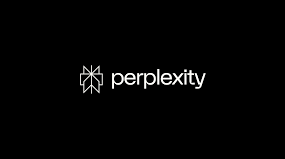
In our first Tech Estate Founders’ Corner, we speak to Ebenezer Ghanney, the Founder of WeWire. Ebenezer shares his inspiring entrepreneurial journey with us and what sparked the founding of WeWire.
● Who is Ebenezer Ghanney?
I am the Founder of Wewire. I studied finance in the university so I had no knowledge about the tech space. After university, I worked with Liquid Financial Services where I assisted in building a savings product for customers. I left Liquid Financial Services sometime in 2021 and joined Yellowcard as a Country Operations Manager. I was able to build their operations in Ghana from 0 to about 150,000 users, before leaving in April 2022.
While working with Yellowcard, I had been building Wewire as an Over-The-Counter (OTC) desk for Forex (fx) transactions for a while, however, I observed the growing demand from businesses to move money across borders and this inspired me to build a technical solution to the problem.
In April 2022, I officially started building Wewire and the team has grown to about 19 team members across 4 markets.
● If you could describe your startup’s journey in a word, what would it be, and why?
Experiment. Coming from a pure finance and accounting background, moving into tech was more of an experimental journey for me. I had the opportunity to join both an Audit Firm and a Fintech startup for my National Service, however I chose to work with the Fintech startup instead of the Audit service, which would have been a better fit for my background.
That experience that you always get going into a different industry was exciting for me. All my experiences from that point onwards led to me founding Wewire.
● What are some of the steps you took to make Wewire a reality?
Working in the crypto space with Yellowcard, I constantly saw requests from people, especially businesses, to buy stable coins as a means to make cross-border transactions.
What about those who needed to make such transactions and yet had no knowledge of the crypto medium? I decided to build a package or create a solution where businesses could send money from their local currency to people in other countries.

● Compliance and regulatory requirements can vary across different countries. How do you navigate these challenges to provide a seamless cross-border payment experience?
So, the first thing we did was set up an entity in Canada and apply for a Managed Services Provider (MSP) license. All our foreign currency transactions are handled by a Financial Transactions and Reports Analysis Centre (FINTRAC) regulator in Canada. As a result, we don’t actually touch foreign currencies in Ghana, or Nigeria or any of the local markets we operate in.
Because Wewire is modelled after banking in some sense, we went ahead to bring on board the team, someone who had a 10-year working experience in the banking sector. This team member was to handle our compliance such that for a business to work with us, it had to provide its business registration documents, IDs of shareholders, proof of address of directors, shareholders, among others.
● Can individuals access and make transactions via the Wewire platform?
At the moment, we are not servicing individuals because, again, the Wewire platform is bound by the regulations and compliance systems in place. We believe that regulators usually want to protect individuals from not losing their money to illicit activities and all that. So, when it comes to dealing with individuals, regulators are kind of very keen to put strict procedures in place. We restricted it to businesses because we believe that businesses have certain structures in place and they also have the ability to verify those structures.
However, probably in the future we will look at serving individuals once the regulatory space is clear and we have clear lines of activities.
● Tell us about a customer success story that really stands out for your startup.
We had this customer that got referred to us last year. He imports vegetables from other countries and he supplies them to big shopping malls in Ghana. He randomly reached out to us at the time when interest rates were fluctuating. He needed to pay for supplies worth above 50,000 Euros. He kept complaining about the rate he was getting from others and how fast those payments could go through to the supplier.
We were able to come in and help solve that problem, and till today, almost every week this customer reaches out to us to process his transactions for him.
● What are the most essential qualities for success as a startup founder, and how do you cultivate those qualities?
Observation. Be able to observe trends and observe how people are doing things. Next, ask questions that lead to great answers and try to build based on the answers you are getting. Also, build a capable team comprising members that are able to make certain key sacrifices to ensure the business is taking advantage of the right opportunities. Having a physical or personal experience with customers is also key to helping you know what they actually need.
● In your opinion, what are the key trends and challenges in the cross-border payments industry, and how is your company adapting to them?
We usually choose to go counter trend. I believe the current trends are things like AI and all those things that are buzzing. We are looking at building from things that businesses are telling us they want or the needs that we see you want. So, based on what one of our customers wanted, we decided to launch a tech platform where businesses can create dollar cards to make transactions, among others.
● What advice would you give to individuals aspiring to build a flourishing startup like yours?
Build what businesses need. Build products that solve a specific need that people are willing to pay for. Another thing is that people will invest or fund your business when you are already making money. So, build products that make money from day one and that can be built with a sustainable small team. This will help you sustain yourself so the additional money you make becomes an extra layer for your growth.
Thank you, Mr. Ebenezer Ghanney, for imparting valuable lessons to aspiring startup founders and readers in general. We appreciate your time with us Mr. Ghanney.





